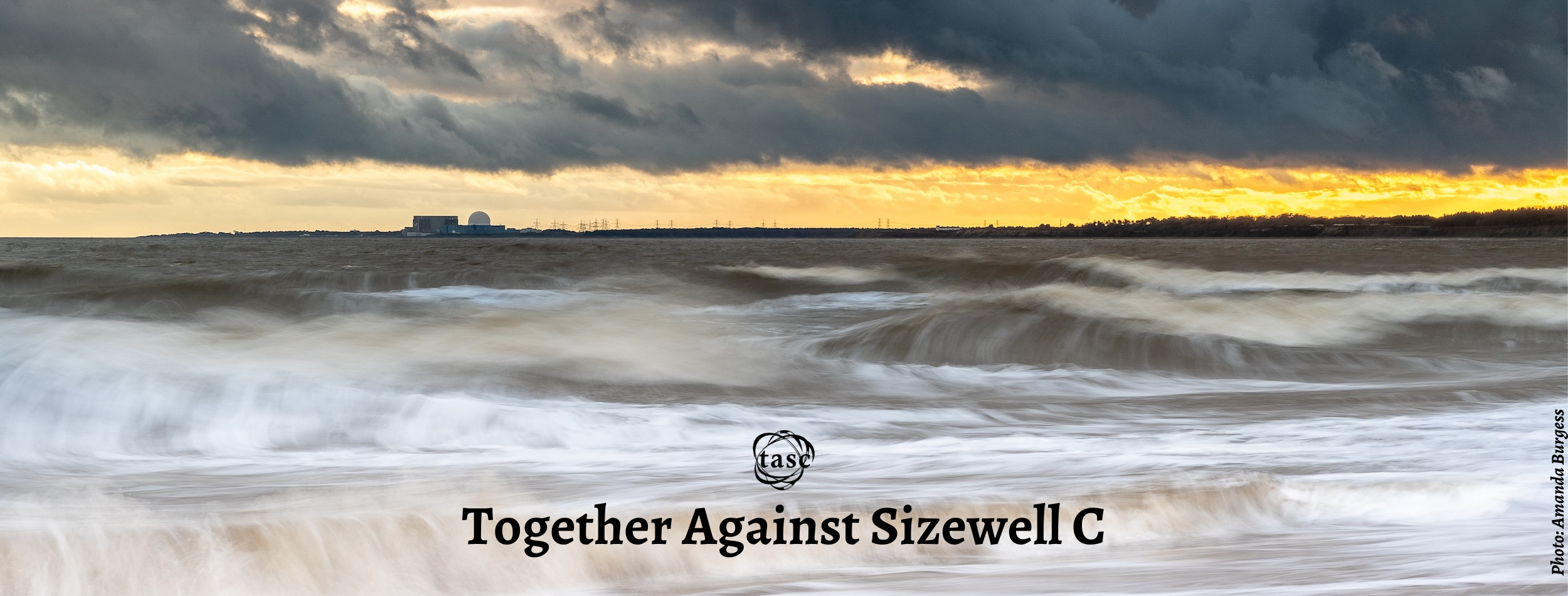
Despite the fact that the Sizewell C EPR may not ever be built or at best, is fifteen years away from turning 1 Kwh of electricity, EDF has applied to the Environment Agency (EA) for three environmental permits required for the operation of the proposed power plant.
In response, the EA has launched a consultation to gather feedback from the community and national stakeholders regarding applications for these permits. The three permit applications were submitted to the Environment Agency in July 2020 and cover the controls that would be needed to meet required standards of environmental protection during the disposal and discharges of radioactive wastes, the operation of standby power supply systems using diesel generators and the discharges of cooling water and liquid effluent into the North Sea. Neither EdF – nor, sadly, the EA, our environmental guardian, seem to have any concept of the huge controversies that underlie the subject of exposure to even low levels of radioactivity. Levels of exposure, below which the damage created to the health of those exposed is deemed ‘acceptable’, (most environmental ‘costs’ are balanced against what are considered to be societal ‘benefits’) are constantly being lowered and the body of evidence which exposes the deliberate avoidance of an informed debate on a subject which has been frustrated since the Hiroshima and Nagasaki bombs from obfuscation and convenient ignoring of the facts, continues to grow: see http://www.llrc.org/children.htm. By the time the permits are active in fifteen years or so – if they are ever needed to be so – it is entirely possible that the much-needed debate over low level radiation will have been undertaken and that the contamination levels sought by EdF and likely to be approved by the EA will be seen as dangerous to health.
The consultation on the application runs to 2nd October 2020, after which time the EA must decide whether to grant or refuse the issue of the permits. The EA’s Nuclear New Build Project Manager, Simon Barlow, has said: “These applications represent the culmination of 10 years of pre-application discussions with EDF SZC Co. We welcome people’s views on these permit applications and will carefully consider their comments before we progress to the next stage of our decision-making process. As these applications relate to the disposal and discharge of radioactive waste; operation of standby power supply systems using diesel generators; and discharges of cooling water and liquid effluent into the North Sea they will all have implications for the environment and should be rigorously examined – hence our consultation.”
Experience tells us that the EA will not take any notice of the calls for a recognition of the evidence which casts doubt on the safety of the levels of discharge EdF are likely to seek. Doses from radioactivity and the risks they present have long since been recognised as having less and less relevance to each other particularly in the case of inhalation or ingestion of radioactive particulates, but a decade of repeated attempts to engage the Health Protection Agency’s (HPA) advisory body the committee on Medical Aspects of Radiation in the Environment (CoMARE) has thus far proved fruitless. What are they afraid of discussing?
TASC are concerned that current government guidelines allow too high levels of radioactive waste and chemical discharges into the environment. For more information on TASC’s views on the impacts of low-level radiation … HERE
TASC’s response to the Environment agency can be found here

